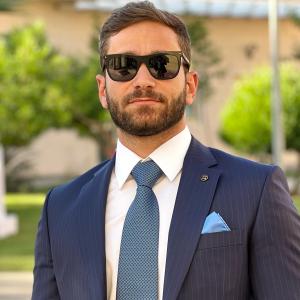UNESCO and the Italian Cooperation Launch 3-year Project to Improve Access to Quality Education in Southern Iraq
26 October 2025
Basra, Iraq – 23 October 2025 – The Italian Ministry for Foreign Affairs and International Cooperation, through the Italian Agency for Development Cooperation (AICS), has entrusted UNESCO with the implementation of the project “Improving Access to Inclusive Quality Education in Southern Iraq”. The initiative aims to expand access to education for thousands of out-of-school children in the governorates of Basra, Dhi Qar, and Maysan.
“This new partnership reinforces UNESCO’s commitment to ensure that every child in Iraq has the right to access quality and inclusive education,” said Mr. Kar Hung Antony Tam, Officer-in-Charge and Chief of Education at the UNESCO Iraq Office, “Working with the Italian Cooperation, we aim to transform the lives of children who have been left behind.”
“I am glad to acknowledge the shared effort to support development in Iraq by Italian Cooperation and ENI. By joining our hands, we can truly make a difference and support the future generations of learners”, said H.E. Niccolò Fontana, Ambassador of Italy to Iraq, “Education plays a crucial role in unlocking better living conditions, better jobs and more prosperity for everyone.”
The project builds on the strong collaboration between UNESCO and AICS, which has already enabled more than 160,000 children to access education across Iraq since 2018. Despite progress, many children in Iraq remain out of school, highlighting the urgent need for inclusive education solutions. This project will provide safe and inclusive learning opportunities for 40,000 out-of-school children, strengthen teaching and learning environments, and enhance the capacity of educators and Parent-Teacher Associations.
The project contributes to Iraq’s National Education Strategy (2022–2031) and supports the achievement of the Sustainable Development Goals, particularly SDG 4 on quality education and SDG 5 on gender equality. By prioritizing gender equality and inclusivity, the project will also support children with disabilities and vulnerable groups, helping to foster resilience, social cohesion, and long-term development in southern Iraq.


